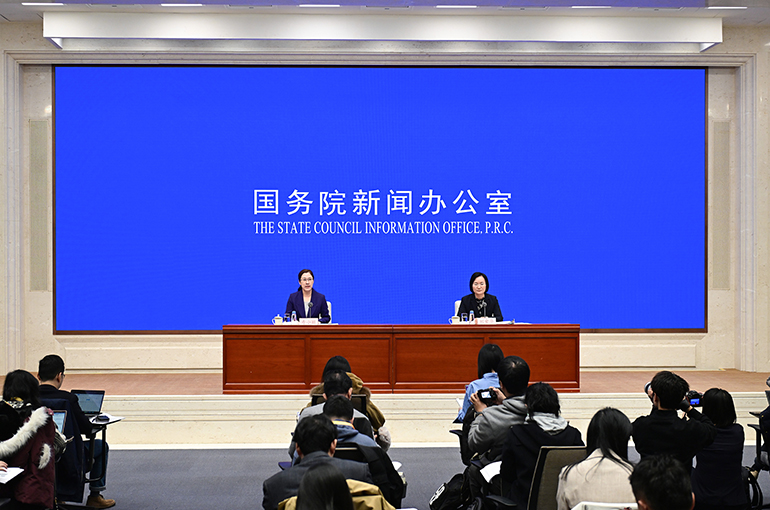 China's Economy Is Likely to Continue Improving in Fourth Quarter After Positive October Data
China's Economy Is Likely to Continue Improving in Fourth Quarter After Positive October Data(Yicai) Nov. 16 -- The Chinese economy is expected to continue to improve in the fourth quarter of the year despite relatively high external pressure and insufficient domestic demand, after economic indicators rebounded in October thanks to the effective implementation of policies to stabilize growth and last year's low base.
The latest economic data, especially the outstanding consumption performance, met market expectations, said Lian Ping, chairman of the China Chief Economist Forum. Consumption increase will drive the gross domestic product growth in the fourth quarter, Liang added, noting that the GDP will grow at a faster-than-expected rate of about 5.5 percent in this quarter.
Retail sales of consumer goods rose 7.6 percent in October from a year earlier, up 2.1 percentage points from the previous month, according to data released yesterday by the National Bureau of Statistics. Chief economists polled by Yicai earlier predicted that retail sales of consumer goods would have risen 6.6 percent in October from the same period last year.
The rebound in retail sales of social consumer goods can be attributed to the continuous effect of supportive policies and the strong demand for travel during the National Day holiday, said Liu Aihua, spokesperson at the NBS.
In the future, consumers' consumption capacity and desire to spend still need to be further improved, Liu noted. Meanwhile, with the sustained economic recovery, the continuous improvement of the employment situation, and the effective consumption-promoting policies, the foundation for restoring and expanding consumption will continue to be consolidated, she added.
China's value-added industrial output, which measures the activity of designated large enterprises with an annual turnover of at least CNY20 million (USD2.8 million), jumped 4.6 percent last month from a year earlier, up 0.1 point from September, NBS data also showed. Chief economists polled by Yicai had predicted the figure to come in at 4.5 percent.
The growth in industrial production slowed down in October, but the industrial added value rebounded slightly due to last year's low base caused by the Covid-19 pandemic, Liu Xiangdong, chief analyst at Eastern Spring Capital, told Yicai. Demand was still insufficient last month, he added.
The year-on-year growth rate of industrial production will continue to rise in the next two months due to last year's low base, but the extent of the growth will mainly depend on the implementation of the policies to stabilize growth, the recovery of consumer spending, and the trend of the real estate market, said Wang Qing, chief macroeconomic analyst at Golden Credit Rating. The demand for manufactured goods will be significantly suppressed as the real estate industry continues to be adjusted, Wang noted.
Meanwhile, China's fixed-asset investment grew 2.9 percent in the first 10 months of the year from a year earlier, down 0.2 point from the growth in the first nine months, dragged down by a 9.3 percent decline in real estate investment, according to the NBS. Chief economists earlier surveyed by Yicai expected fixed-asset investment to rise 3.1 percent and real estate investment to drop 9 percent.
Overall, it is expected that the real estate market will take longer to recover, said Wu Chaoming, deputy director at the Chasing International Economic Institute. Therefore, the investment in real estate will continue to drop this quarter, Wu pointed out.
China's urban surveyed unemployment rate came in at 5 percent in October, unchanged from September and remaining at the lowest since December 2021.
Editor: Futura Costaglione